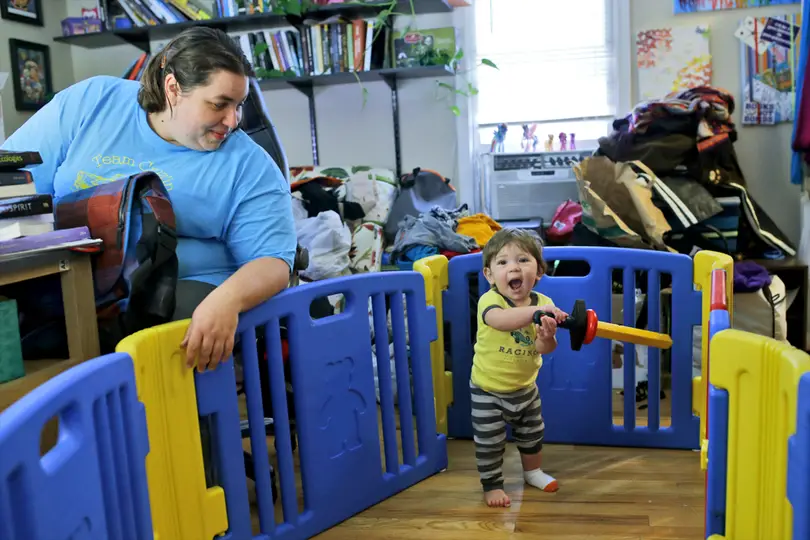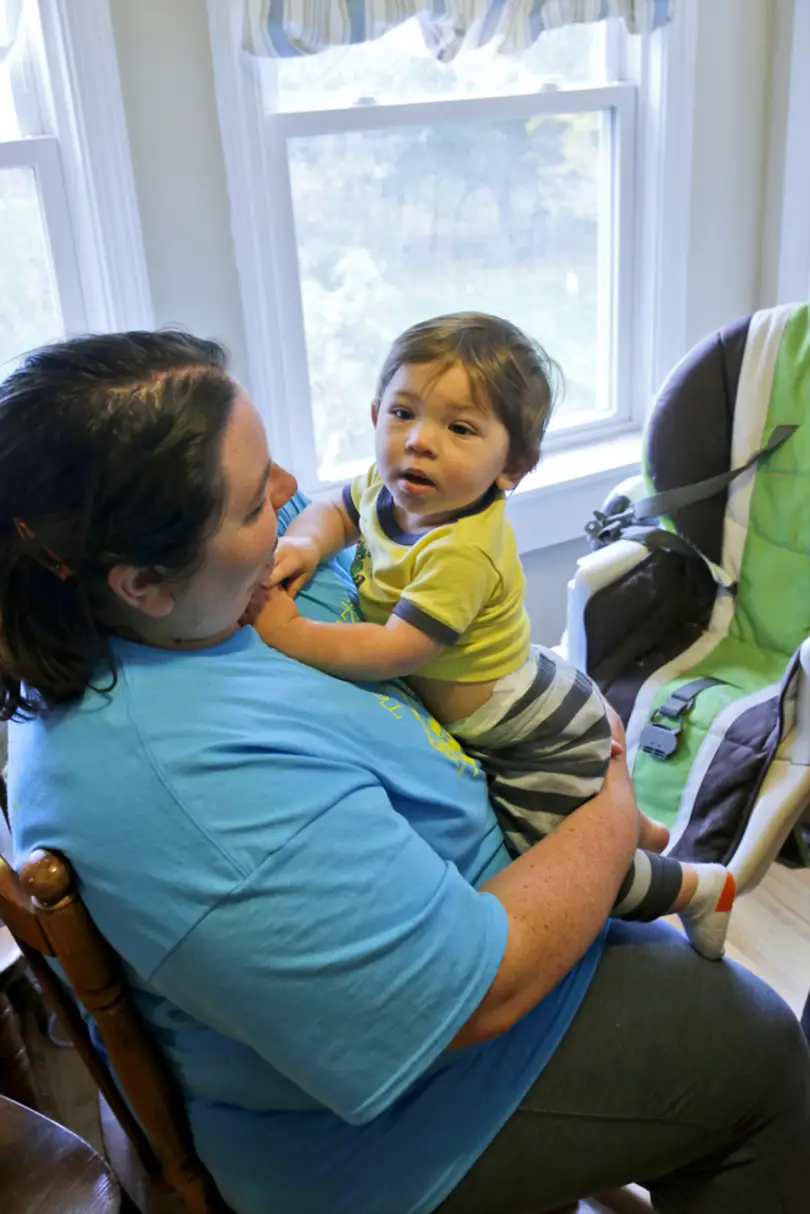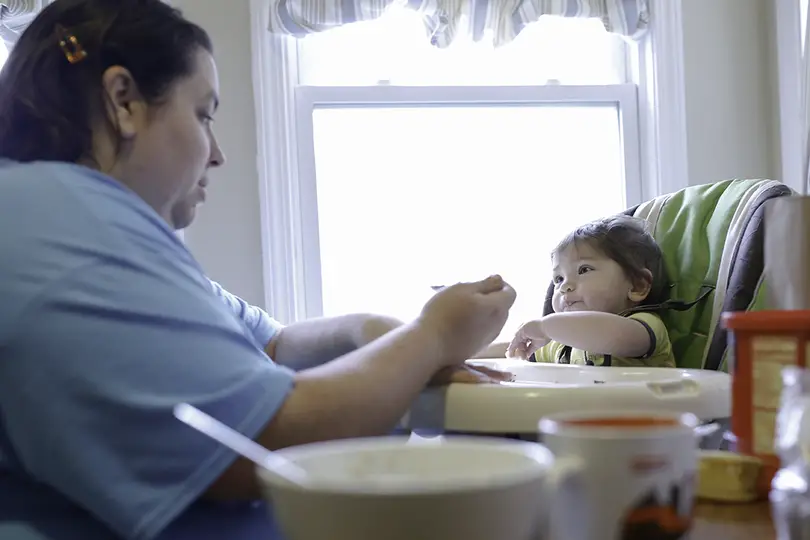SU graduate students struggle to pay for, find places for child care
For Courtney O’Dell, affording child care can sometimes be a guessing game.
As a doctoral student in the religion department with two young sons, the costs of child care, food and other living expenses can add up.
In October, Syracuse University announced that it would offer child care grants to graduate students. Full-time graduate students can apply to receive $375 for each child under 6 years old, with a limit of two children per applicant. The deadline to apply for the grant is Nov. 3.
Graduate Student Organization President Patrick Neary said he estimates there are 140 graduate students with children. So far, the GSO has received 48 applications for the grant.
But while the grant is helpful, it doesn’t solve the larger problem of providing adequate support for those with children. Several university committees and offices are working on more long-term solutions to providing child care, but students and faculty say the SU community needs to change the way it views work-life balance concerns.
The grant doesn’t cover the full cost of child care—it would only cover one week of child care at SU’s Early Education and Child Care Center, which would cost $400 per week for her two sons to attend, O’Dell said. On top of that, O’Dell said the center only enrolls 60 children each year among its constituency of students, faculty and staff. Parents are also encouraged to apply to be on the waiting list at least two years in advance, she added.
The center’s biggest weaknesses are availability and cost, O’Dell said. The center operates on a sliding scale, where the less a person earns, the less they have to pay in tuition to the center, according to the daycare’s website.
While this is helpful for graduate students, most still cannot afford the cost of care, O’Dell said. She said the university often assumes graduate students have other sources of income in their household, such as a teaching assistant position.
TAs earn an average of $17,070 per year, but some TAs, such as those in the Visual and Performing Arts department, make as little as $12,155, according to a GSO report. With other costs of living, such as rent, food and transportation, a TA’s week-to-week salary can dissolve pretty quickly, leaving little money to pay for child care.
“The assumption is that you have some other form of income through your spouse or another job to be able to afford these spots,” O’Dell said. “As it stands for most TAs, you couldn’t actually cover day care for your child.”
With roughly 20 spots available for graduate students at SU’s center and off-campus centers boasting even higher prices, it leaves few options. Neary said he agreed that the grants aren’t enough to fund child care for an entire semester, which typically lasts 12-16 weeks.
Neary serves on the Child Care Advisory Group, an SU committee of primarily faculty and staff that work to improve child care services on campus. The group devised the child care grant for graduate students, but is trying to think of more long-term solutions, he said.
The group considered expanding SU’s center, but realized it would be too expensive, he said. It has also considered forming liaisons with other local child care centers, but changes like that wouldn’t be as immediate as creating a grant.
Kal Alston, senior vice president for human capital development who chairs the Child Care Advocacy Group, said the group was formed to improve child care access for faculty, staff and students. But she added that members have started to think beyond the two campus centers. The group also hired a consultant to analyze how the university could tap into child care resources in the Syracuse region, Alston said in an email.
“We also are well aware that we need to be creative in order to expand the number of opportunities for university families, and I believe we are getting excellent assistance in working through viable and sustainable options,” Alston said.
While the university is looking at ways to expand its services, Neary said the problem with the current outlook is that people are only open-minded to a certain extent.
“There’s a willingness to put resources out there, but we’re not bending over backwards for it,” Neary said.
Groups such as the Child Care Advisory Group and the University Senate Women’s Concerns Committee are realizing this need and have begun to take action, said Marty Hanson, chair of the Women’s Concerns Committee and member of the advisory group.
Last February, the Women’s Concerns Committee issued a motion to create an ad hoc committee on Family-Friendly and Work-Life Balance Concerns, which passed almost unanimously. The motion states that it hopes to address concerns including the “lack of adequate and affordable child care” for faculty, staff and graduate students; “uneven implementation” of maternity and paternity leave policies; and the need to broaden the university’s definition of family.
The responsibilities have now been assumed by the Services to Faculty and Staff Committee, which had been defunct for several years, Hanson said. The group is still forming and finalizing its plans, but they will mostly be family-friendly and work-life concerns, she said.
“The campus understands the need for child care,” Hanson said. “We want people when they come to work to be really firm in the belief that their child is taken care of.”
Holley Benjamin, director of the Early Education and Child Care Center, said though SU’s services may not be the best nationwide, the community still needs to keep in mind that as a whole, SU is “doing much better than other places.”
She also stressed that the center isn’t formally a day care center, but an education program. Legally, the center can only be open for nine hours a day, which can sometimes anger faculty and students who want it to be open for extended hours, she said.
“There’s a desire for extended hour care and that’s something I don’t believe in because children shouldn’t be in care for several hours,” Benjamin said. “But family needs are changing and there’s not one better way of changing, but we need emergency backup care and other resources.”
Benjamin said SU could benefit from a work-life coordinator, similar to Pennsylvania State University, which could handle concerns from faculty, staff and students for child care. But as with most policy reform, it requires more space in the budget, she said.
Beyond policy reform, there also needs to be a cultural change in how work-life concerns are valued, said O’Dell, the graduate student. Female faculty in particular may feel pressured not to discuss their family issues among colleagues because they don’t want to appear weak.
Said O’Dell: “I would like for them to have a discussion about imagining the most difficult situation possible—a single mom with 2 or 3 kids, is that grant going to help them?”
Published on November 3, 2014 at 12:01 am
Contact Annie: [email protected]







